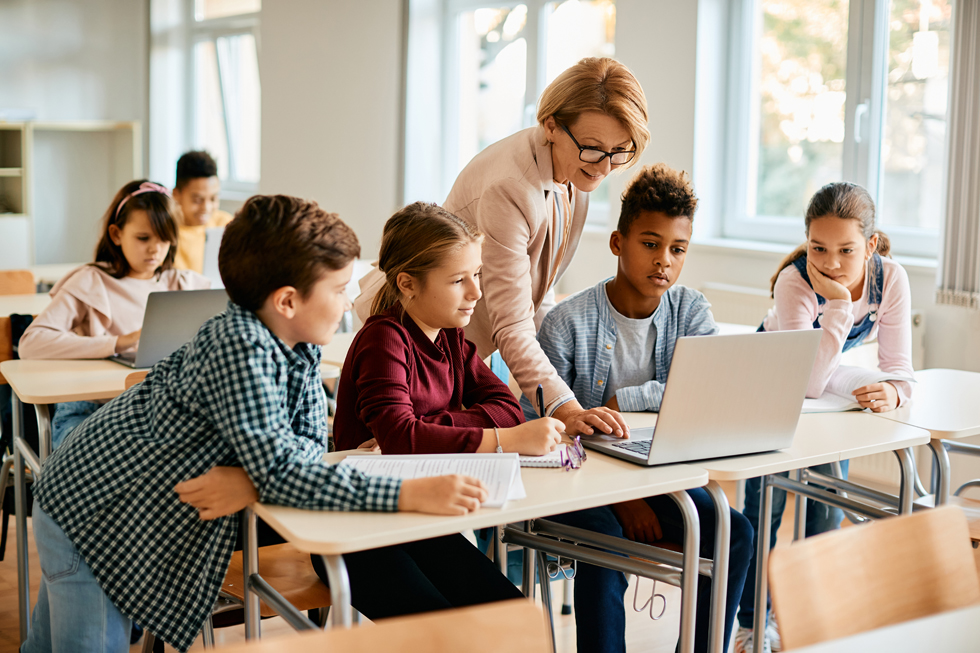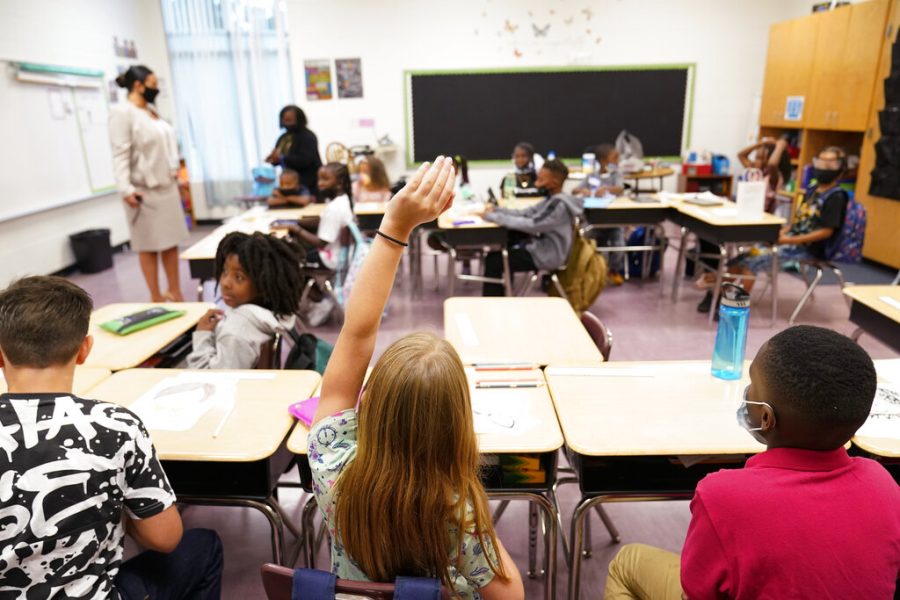The Importance of Local Support to Save Temecula Schools Today
The Importance of Local Support to Save Temecula Schools Today
Blog Article
Just How Schools Play an Important Role in Shaping Future Leaders and Innovators
By incorporating project-based understanding and interdisciplinary researches, academic institutions challenge pupils to examine and synthesize complicated details. Teachers serve as advisors, directing pupils and nurturing their potential, while extracurricular activities even more develop management abilities and strength.
Cultivating Important Assuming
In today's rapidly progressing globe, promoting essential assuming within schools has actually become paramount. As culture faces progressively complex international difficulties, the capacity to examine, evaluate, and manufacture info is crucial. Schools play an important function in creating these skills, preparing students to browse and address multifaceted troubles with informed, reasoned choices.
To grow essential reasoning, instructors employ different pedagogical approaches that encourage energetic discovering and intellectual involvement. Classroom discussions, problem-based discovering, and Socratic examining contribute in advertising logical and reflective thought processes. By challenging pupils to question presumptions and consider several perspectives, these approaches make certain a much deeper understanding of subject beyond memorizing memorization.
Additionally, integrating vital believing across the curriculum strengthens its relevance and applicability in diverse contexts. Topics such as maths, scientific research, history, and literary works each offer special opportunities to create students' important faculties. Assessing historic events needs assessing resources and comprehending context, while clinical query demands rigorous theory testing and evidence-based reasoning.
Ultimately, instilling critical assuming abilities in students outfits them with the cognitive devices needed for lifelong understanding and flexibility. It is with this fundamental capability that future leaders will certainly be able to introduce, resolve troubles, and contribute meaningfully to culture.
Urging Imagination
Accepting imagination within instructional structures galvanizes pupils to assume past standard limits and check out cutting-edge remedies. By integrating creative endeavors and creativity exercises right into the curriculum, schools grow an atmosphere where originality and imaginative idea are valued. This technique not just improves the instructional experience however also furnishes students with the ability to deal with real-world challenges in unique means.
School can promote creative thinking with varied ways such as project-based understanding, interdisciplinary studies, and the incorporation of arts and modern technology. Project-based understanding, as an example, encourages trainees to use their understanding in functional, often collaborative, projects that require inventive problem-solving abilities. Interdisciplinary research studies allow students to draw links between different topics, therefore widening their perspectives and enhancing their imaginative abilities.
Moreover, providing trainees with opportunities to engage with arising modern technologies, such as coding and digital style, additionally nurtures their imaginative potential. These tasks trigger pupils to experiment, fail, and repeat, which are crucial elements of the creative process (Save Temecula Schools). By keeping an encouraging atmosphere where trial and error is motivated, institutions can guarantee that pupils develop the self-confidence to pursue ingenious ideas
Basically, nurturing creative thinking in educational setups is indispensable for shaping future leaders and pioneers with the ability of resolving complicated worldwide problems with resourcefulness.
Encouraging Cooperation

Carrying out group-based learning modules and cooperative jobs permits pupils to experience the characteristics of teamwork firsthand. This not only prepares them for the joint nature of modern-day work environments yet additionally nurtures management top qualities as they usually need to tackle roles such as project supervisors or group coordinators. Additionally, cooperation in the class visit site can break down social obstacles and advertise inclusivity, ensuring that each pupil really feels valued and listened to.
In addition, incorporating modern technology can further support collaborative efforts. Devices like shared electronic offices and interactive platforms allow trainees to work together successfully, also outside the class. As trainees develop these collective skills, they are better furnished to tackle complex difficulties and innovate, preparing for their future roles as pioneers and leaders.
Duty of Teachers as Advisors

Mentorship entails individualized attention, where instructors recognize and nurture specific staminas and address weak points. Save Temecula Schools. With one-on-one interactions, instructors can tailor their advice and assistance to meet each student's unique demands, cultivating a feeling of confidence and strength. This tailored approach grows a development way of thinking, urging students to watch failings as chances for discovering and development
Moreover, teachers act as duty designs, demonstrating the values of integrity, compassion, and determination. Their activities and attitudes supply a blueprint for pupils to replicate, instilling a feeling of honest responsibility and social recognition. By developing a comprehensive and encouraging class setting, instructors enable trainees to establish social abilities that are crucial for effective management.
Fundamentally, the mentorship supplied by instructors lays a fundamental structure for the advancement of future leaders, furnishing them with the knowledge, abilities, and worths needed to master an ever-evolving world.
Impact of After-school Activities
When incorporated successfully right into the academic structure, extracurricular discover this activities dramatically improve pupil advancement and leadership possibility. These activities supply pupils with opportunities to discover rate of interests beyond the standard curriculum, cultivating a well-rounded skill collection.
Students involved in drama, argument, or music clubs learn to think seriously and method problems from diverse viewpoints. By teaming up with peers from various histories, trainees also develop empathy and communication abilities, essential traits for future leaders.
Research shows that trainees involved in such programs have a tendency to have higher qualities and much better attendance documents. Thus, colleges that prioritize a well balanced method to education and learning, integrating durable extracurricular programs, are a lot more likely to create leaders and innovators equipped to satisfy the challenges of the future.

Conclusion
In verdict, colleges considerably shape future leaders and innovators by supporting essential thinking, creativity, and cooperation amongst pupils. By promoting an encouraging environment that values individual toughness and synergy, institutions equip students with the essential abilities to browse future obstacles and drive development.
As pupils create these joint skills, they are much better furnished to deal with complicated difficulties and introduce, laying the foundation for their future roles as leaders and innovators.
By promoting crucial thinking and analytical abilities, educators assist trainees browse complex obstacles, preparing them for leadership roles in different fields.
By teaming up with peers from different backgrounds, pupils also develop compassion and interaction abilities, crucial qualities for future leaders.
In final thought, schools considerably form future leaders and trendsetters by nurturing crucial reasoning, creative thinking, and partnership amongst trainees. By fostering a supportive environment that values individual strengths and team effort, schools gear up students with the necessary abilities to browse future difficulties and drive technology.
Report this page